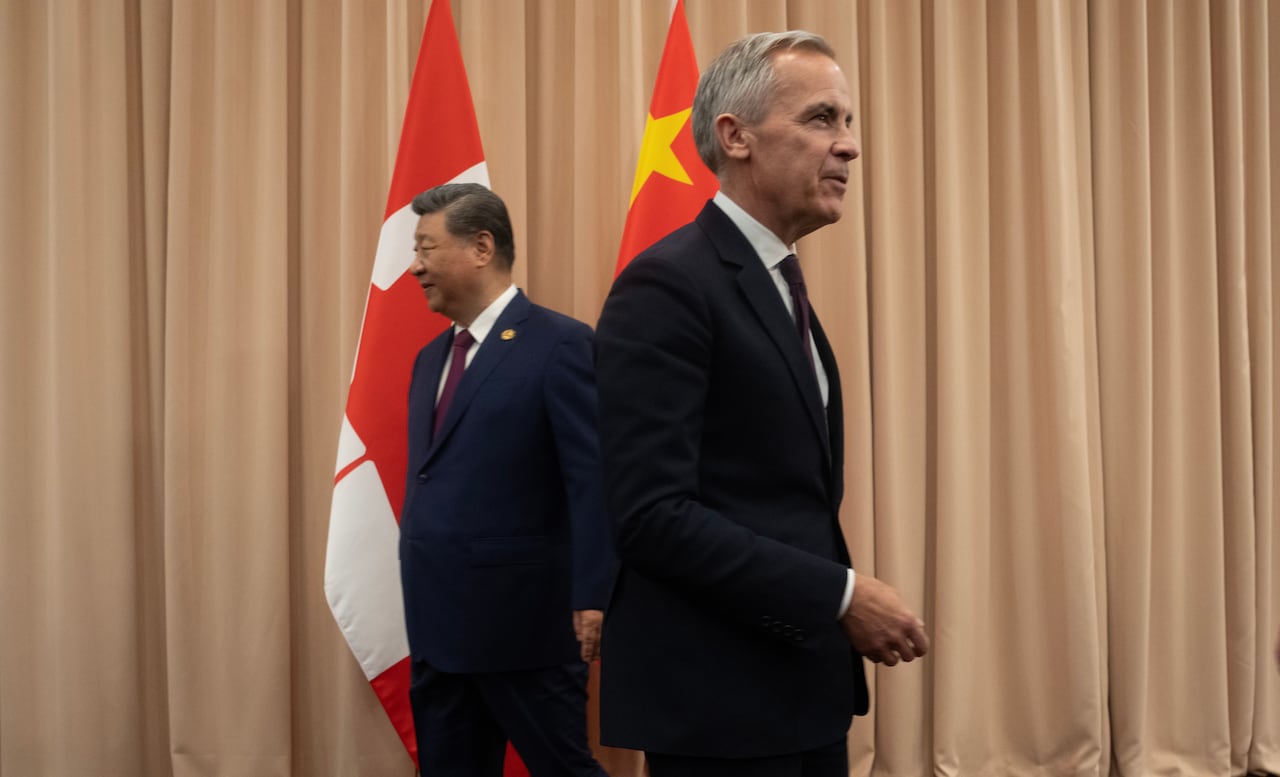The head of Canada's spy agency is warning of an “alarming” number of young people becoming radicalized.
In his first annual address, Canadian Security Intelligence Service (CSIS) director Dan Rogers said violent extremism — whether motivated by religion, ideology or political views — “remains one of Canada's most pressing national security challenges.”
“It is alarming that nearly one in 10 terrorism investigations at CSIS now includes at least one subject under the age of 18,” Rogers told a crowd of invited guests at the National Arts Center in downtown Ottawa.
He pointed to an August case in which a minor was arrested in Montreal on charges of planning an attack on behalf of Daesh, also known as ISIS.
A few months earlier, the RCMP arrested a 15-year-old Edmonton juvenile on suspicion of links to an online violent extremism network known as 764.. the network is known for its hunt for children and youth.
The RCMP also charged two 15-year-olds in Ottawa on charges of preparing mass casualties. attack on the Jewish community.
According to Rogers, violent extremists are motivated by an often personalized set of beliefs, including xenophobia, accelerationism, nihilism, anti-Semitism, misogyny, extreme interpretations of religion and more.
CSIS Director Dan Rogers addressed Canadians for the first time at a press conference in Ottawa to outline current threats to national security. Rogers stressed that a growing number of radicalized young Canadians are under investigation.
“They find inspiration and motivation in events and trends that polarize society or cause them to lose hope for the future,” Rogers said. They also easily access and distribute content online that radicalizes them and reinforces their view that violence is justified to achieve their extremist goals.
Fortunately, he said, only a small number of youth and adults with extreme views resort to violence.
“But when they do, the consequences will be devastating.”
The CSIS director said there have been 20 violent extremist attacks in Canada since 2014, resulting in 29 deaths and at least 60 casualties, and thanked his staff and law enforcement for stopping more.
“Erosion of social cohesion, growing polarization and major global events provide fertile ground for radicalization, and many who resort to violence become radicalized solely online—often without guidance from others,” Rogers said.
“They use technology to do this secretly and anonymously, seriously challenging the ability of our investigators to keep up and detect and prevent acts of violence.”
Rogers added that public support for young people can help curb radicalization early and prevent it.
China and Russia continue to attack Canada: Rogers
The speech also touched on foreign interference and espionage, noting that both China and Russia have a stake in what is happening. in the Canadian Arctic.
China, according to Rogers, is looking for an economic foothold in the region, while Russia's position in the Arctic “remains unpredictable and aggressive.”
China also continues to target Canada for classified and confidential information.
“Chinese spies have attempted to recruit Canadians with access to government plans, intentions, information and military experience through social media and online job platforms,” he said.
CSIS has been warning about the risk of Chinese foreign interference for years. The spy agency's latest comments come as Prime Minister Mark Carney appears determined to repair relations with Beijing.

Carney held a bilateral meeting with Chinese President Xi Jinping on the sidelines of the Asia-Pacific Economic Cooperation summit last month, marking the first formal contact between the two leaders since 2017.
Asked what conversations CSIS is having with Carney about China, Rogers said the agency's role “has not changed.”
“We provide the government with intelligence and advice on national security threats. This has not stopped, it continues very actively,” he said.
“I would say that as the nature of the relationship changes between Canada and China, or Canada and any other country, we will have to evolve our operations to ensure that the right intelligence reaches the government.“
Canadians asked to be vigilant about data storage
He also raised the issue of data storage, noting that huge amounts of Canadians' data are increasingly being stored outside of Canada.
“This arms states that may choose to act against Canadian interests by using new ways to weaponize data and information,” he said.
Asked for more details during a media question-and-answer period, he said the government may have to consider policy options that “go beyond CSIS.”
“It will be difficult to correct the situation,” he said. “When we talked publicly about certain types of data in the past, we wanted to make sure Canadians had their eyes wide open about where they were putting their data, on what platforms and who controlled that data.”
Former CSIS director David Vigneault has raised concerns about TikTok, saying that “there is a very clear strategy on the part of the Chinese government” to collect personal information.
This is Rogers' first appearance since taking over the spy agency late last year. His predecessor started this tradition during his tenure.
“My goal is not to alarm. I want to reassure Canadians that CSIS and the rest of the Canadian security and intelligence community are here and working tirelessly in their interests,” Rogers said.
“CSIS will continue to deliberately and ruthlessly prioritize and become accustomed to the extraordinary pace of change.”
Before becoming director of CSIS, he served as deputy national security and intelligence adviser to the prime minister and before that spent ten years at the Communications Security Directorate, Canada's foreign intelligence agency.








